De Nederlandse schrijver Harry Mulisch werd geboren op 29 juli 1927 in Haarlem. Zie ook alle tags voor Harry Mulisch op dit blog.
Uit; The Procedure (Vertaald door Paul Vincent)
„FIRST DOCUMENT
MAN
yes, of course I can come straight to the point and start with a sentence like: The telephone rang. Who’s ringing whom? Why? It must be something important, otherwise the file wouldn’t open with it. Suspense! Action! But I can’t do it that way this time. On the contrary. Before anything can come to life here, we must both prepare ourselves through introspection and prayer. Anyone who wants to be swept along immediately, in order to kill time, would do better to close this book at once, put the television on, and sink back on the settee as one does in a hot foam bath. So before writing and reading any further we’re going to fast for a day, and then bathe in cool, pure water, after which we will shroud ourselves in robes of the finest white linen.
I’ve switched the telephone and the front doorbell off and turned the clock on my desk away from me; everything in my study is waiting for the events to come. The first luminous words have appeared in the ultramarine of the computer screen, while outside the dazzling, setting autumn sun shines over the square. From the blazing western sky tram rails stream like molten gold from a blast furnace; between the black trees cars appear from the chaos, disappear into it, people walk at the tips of shadows that are yards long. From the position of the sun in my room I can see what time it is: the light is falling diagonally, it’s six o’clock, rush hour, for most people the day’s work is over.
The origin of man was a complicated affair. Much of it is still obscure, not only in biological, but also in theological circles. In the Bible, indeed, this creature is actually created twice, and to a certain extent three times. Genesis 1:27 tells us that on the sixth and last day of creation the following happened: “So God created man in his own image, in the image of God created he him; male and female created he them.” So there were two of them; immediately afterward God says: “Be fruitful, and multiply.” So the man was Adam, but the woman wasn’t Eve, because the primeval mother of us all saw the light of day only later, when the week of creation was long since over; she wasn’t created separately, but came forth from a rib of Adam’s.“
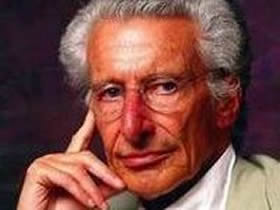
De Koreaans-Amerikaanse schrijver Chang-Rae Lee werd geboren op 29 juli 1965 in Seoel. Zie ook alle tags voor Chang-Rae Lee op dit blog.
Uit: A Gesture Life
„In my first years in Bedley Run, things were a bit different. Even the town had another name, Bedleyville (this my attribution), which was changed sometime in the early 1970s because the town board decided it wasn’t affluent-sounding enough. The town in fact wasn’t affluent at the time, being just a shabby tan brick train station and the few stores that served it, some older village homes, several new housing developments, and the surrounding dairy cow pastures and wooded meadows, nothing fancy at all, which was how I was able to afford to move here and open a business. There were perhaps a few thousand residents, mostly shopkeepers and service people, and the small bedroom community who were their patronage.
I’d read about the town in the paper, a brief slice-of-life article with a picture of a meadow that had been completely cleared for new suburban-style homes, just white stakes in the frozen ground to mark where the streets would be. It looked sterile and desolate, like fresh blast ground, not in the least hopeful, and yet I felt strangely drawn to the town, in part because of the peaceful pace of life that the article noted, the simple tranquillity of the older, village section that made me think of the small city where I lived my youth, on the southwestern coast of Japan. I had already driven through the more established suburbs nearer to the city and found them distinctly cold, as well as too expensive. I’d ask for directions at a garage, or buy some gum at a candy store, and an awkward quiet would arise, that certain clippedness, and though I never heard any comments, I could tell I wasn’t being welcomed to remain too long.“
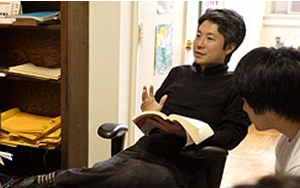
De Duitse dichter en schrijver Wolfgang Bittner werd geboren op 29 juli 1941 in Gleiwitz, Oberschlesien (tegenwoordig Gliwice, Polen). Zie ook alle tags voor Wolfgang Bittner op dit blog.
Gedichte
Was aber finden wir vor,
verurteilt und fremd,
und wonach suchen wir,
trauernd,
in unseren Hoffnungsgedichten,
den empfindsamen Spielen,
Ablichtungen.
So mauern wir Bunker,
zu überleben,
und schreiben uns
frierend
über den Winter.
Gedichte
wie Leuchtfeuer an Land,
wie Botschaften einer anderen Kultur,
Pflugschar,
brechend den Boden,
Gedichte wie Furchen,
in denen Saat aufgeht
Dem Vollmond entgegen …
Ließen mich einst den Neumond gebären
Nun laß ich ihn einfach gewähren
Wenn er sich mutwillens voll – säuft
Wie ein lüsterner Hund
Trunken sich selbst überläuft
Verliert er ganz ohne mein Tun
Das so ersehnte vollmundige Rund
Kehrt betrübt – doch mehr klug als zuvor
Zurück zu dem lichtlosen Anbeginn
Den ich ihm einst verlieh’n
Vielleicht kommt’s ihm dann in den Sinn
Endlich vor mir zu k n i e n
Dann wäre ich wahrlich aufgeschmissen
Aus meiner Selbstherrlichkeit rausgerissen
Und müßte bekennen:
Ich war es nicht
Der Dich formloses Mondgesicht
Einst aus düsterem Dunkel gebar
Du bist das Geschöpf einer namlosen Kraft
Die mir bis heute nicht offenbar
Doch bis dies zur Wirklichkeit wird
Mag ruhig weiter die Mode sein:
In der Regel schlafen die Frauen allein
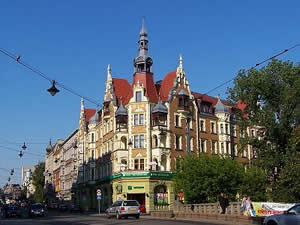
Gleiwitz (Gliwice), der Schlesische Hof
De Amerikaanse dichter en vertaler Stanley Jasspon Kunitz werd geboren in Worcester, Massachusetts, op 29 juli 1905. Zie ook alle tags voor Stanley Kunitz op dit blog en ook mijn blog van 29 juli 2010.
The Testing-Tree
1
On my way home from school
up tribal Providence Hill
past the Academy ballpark
where I could never hope to play
I scuffed in the drainage ditch
among the sodden seethe of leaves
hunting for perfect stones
rolled out of glacial time
into my pitcher’s hand;
then sprinted lickety-
split on my magic Keds
from a crouching start,
scarcely touching the ground
with my flying skin
as I poured it on
for the prize of the mastery
over that stretch of road,
with no one no where to deny
when I flung myself down
that on the given course
I was the world’s fastest human.
2
Around the bend
that tried to loop me home
dawdling came natural
across a nettled field
riddled with rabbit-life
where the bees sank sugar-wells
in the trunks of the maples
and a stringy old lilac
more than two stories tall
blazing with mildew
remembered a door in the
long teeth of the woods.
All of it happened slow:
brushing the stickseed off,
wading through jewelweed
strangled by angel’s hair,
spotting the print of the deer
and the red fox’s scats.
Once I owned the key
to an umbrageous trail
thickened with mosses
where flickering presences
gave me right of passage
as I followed in the steps
of straight-backed Massassoit
soundlessly heel-and-toe
practicing my Indian walk.
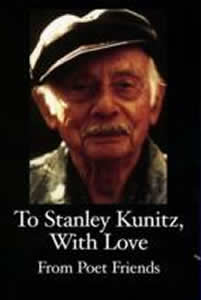
Cover
De Nederlandse schrijfster Marja Brouwers werd geboren op 29 juli 1948 in Bergen op Zoom. Zie ook alle tags voor Marka Brouwers op dit blog.
Uit: Joost Zwagerman: Tegen de literaire quarantaine (fragment over “ Casino” van Brouwers)
“Net als Mystiek lichaam en De buitenvrouw beeldt ook Casino allerlei conflicten uit, in dit geval onder andere het conflict tussen de ‘oude’ intellectuele adel en de ‘nieuwe’ pragmatische rijken tussen de jaren zestig en de jaren negentig; tussen engagementsdenken en rendementsdenken. Marja Brouwers vervlecht die conflicten met een algemeen menselijke tragiek, en juist in die vervlechting schuilt de grote literaire kracht van Casino. Die kracht toont zich onder meer in de opzettelijk hoekige en losse vorm: verhalende fragmenten worden afgewisseld met essayistische passages, en die afwisseling is ruw, grillig en ongepolijst – en weerspiegelt zo de betrekkelijke ruwheid van de inhoud van de roman.
Michaël Zeeman introduceerde in zijn artikel Casino als volgt: ‘In haar roman Casino leidt Marja Brouwers ons binnen in de wereld van de veelverdieners, die in het afgelopen decennium zo spraakmakend en zichtbaar zijn geworden, de mannen van de “exorbitante zelfverrijking” over wie toenmalig minister-president Wim Kok met zoveel afschuw sprak. (..) De geest die Brouwers beschrijft en de zeden waartoe die geest (..) hebben geleid zijn springlevend. Zelfs wie maar sporadisch een krant leest, weet meteen waarover zij het heeft.’
Hee, is dat niet diezelfde krant waaruit de schrijver nu juist volgens diezelfde Zeeman niét mocht putten? Raar is dat. Wie vraagt naar de moord op Van Gogh als mogelijk materiaal voor een roman, krijgt van Zeeman het dogma over het verbod op ‘het dagelijks nieuws’ om de oren; wie zich in een roman concentreert op het traject van idealisme van de jaren zestig naar verloedering in de jaren negentig wordt door diezelfde Zeeman bewierookt en toegejuicht. Dat zal wel een bedrijfsfoutje zijn.”
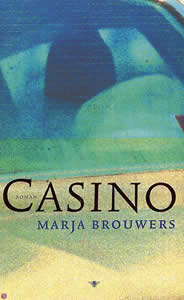
Marja Brouwers (Bergen op Zoom, 29 juli 1948)
Cover
Zie voor nog meer schrijvers van de 29e juli ook mijn twee blogs van 29 juli 2011.
